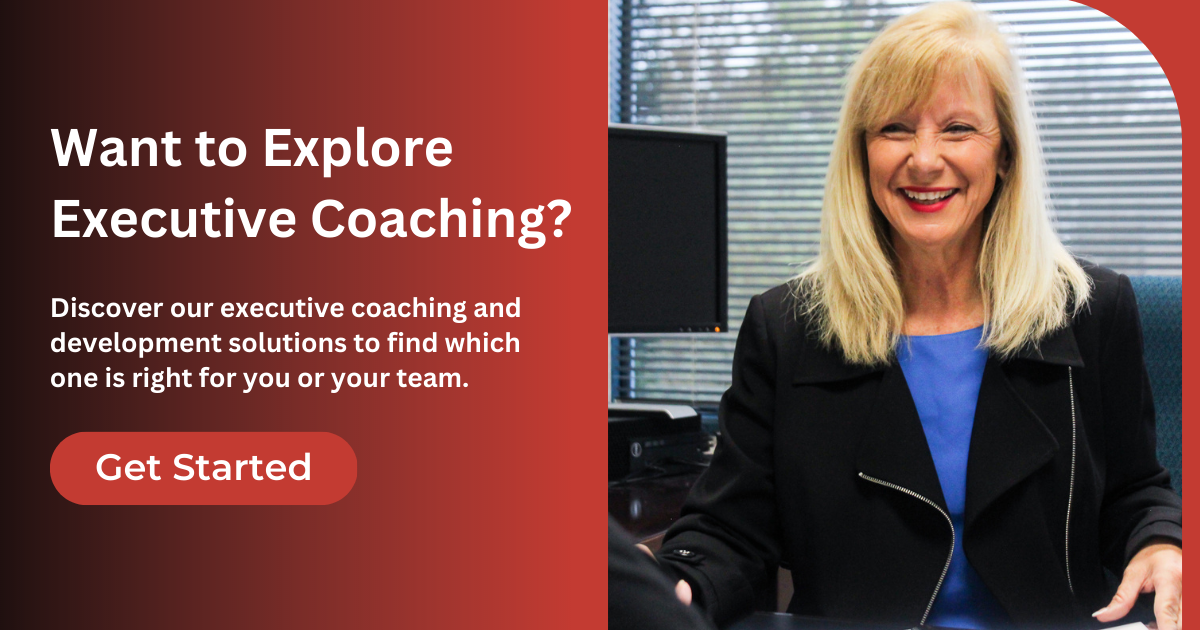
By Turknett Leadership Group
Executive leaders often deal with a lot of pressure, navigating unique challenges they face every day. Executives model leadership, guidance, and confidence. Yet, when executives fall short, it can hurt their careers and negatively impact the entire organization. Other times, executives may already be good leaders, but they may need to grow as their company grows.
Scott Deviney is the President & CEO of Chicken Salad Chick, a fast-growing franchise company based in Atlanta. Scott is one such leader. His organization has experienced rapid growth over the past few years, and he wanted to become a “level-5 leader”, so he signed himself up for executive coaching.
“Chicken Salad Chick was a private equity-owned business that was growing very rapidly, and I was looking for my personal growth to become a level-5 leader,” explained Scott. “About four years ago, I engaged Turknett for executive coaching. I was able to dive into myself and understand what would help me become a stronger leader, but also understand what some of my potential pitfalls as a leader were.”
Executive coaching is one of the most widely used methods for developing leaders, particularly the C-Suite. Research from a Metrix Global study found executive coaching to have a 788% return on investment. Executive coaching is the process of measurably improving the performance and effectiveness of a leader. The coaching process often includes several assessments, various sessions, and an ongoing development plan.
At Turknett Leadership Group (TLG), our coaches leverage the results of our proprietary TLG 360 assessment to gain data from supervisors, peers, and direct reports that help coachees understand where their weaknesses and strengths lie. 360-Degree feedback is one of the most used tools in executive coaching for this purpose!
The Benefits of Executive Coaching
When you take on a coach, you are not entering a mentorship – you are entering into a personal relationship with an advocate whose goal is to see you become all you can be in your professional and personal life. This relationship is incredibly unique. Your coach is fully present, focusing on your challenges, goals, and life. A coach creates a space for their coachee that is psychologically safe and intimate – fostering an environment that leads to transformational change.
Coaches leverage their real-world experience and training to help the coachee build self-awareness around their strengths and weaknesses. They help the coachee to see how their day-to-day interactions and behaviors shape their status as a leader, how they are perceived, and how it affects their role. TLG coaches help coachees do this through the lens of the Leadership Character Model, a proven framework for leadership created by Bob and Lyn Turknett, the founders of TLG. The model breaks down leadership into its most basic components. Here, leadership character is a scale that displays the essential balance of respect and responsibility over a foundation of integrity. This framework, used for over 25 years, has helped thousands of leaders, teams, and organizations realize their full potential.
Most coaching engagements include several sessions, typically one hour long. During these sessions, the coach and the coachee engage in powerful yet vulnerable conversations that cause a coachee to reflect deeply on their behaviors, attitudes, and leadership styles. The result is an acute awareness of themselves, as well as action steps that lead to behavioral change and growth.
Executive coaching presents several benefits for leaders who want to take the next step in their leadership journey. Here are five benefits you might consider when looking into executive coaching:
Self-Awareness
A successful coaching engagement will not only help you become more aware of yourself, but it will also lead you to perform better, increasing your productivity and your collaboration. Through coaching, you will understand others better and how they might perceive you. When you understand others more, you can collaborate more effectively. As trust builds, confidence rises – equipping you to make better decisions that lead to results. “A deep sense of self-awareness is foundational for maximizing your performance in the workplace,” explains Dr. Patricia Thompson, Senior Consultant at TLG. “As a coach, I have found that even for clients who consider themselves to be pretty self-reflective, the assessments and 360 are incredibly impactful for deepening insights and revealing blind spots.”
Emotional Mastery
Executives must be able to control their emotions. Awareness of your emotional state can be challenging, especially when you are in the moment and the steps you take create even more conflict! Emotional mastery is the process of controlling your emotions, and it starts with executive coaching. “When clients hear emotional mastery,” explains Patricia, “many might think ‘I never lose my temper, so I think I’ve got this one covered.’ But the reality is that so many of our emotions play a role at work in a variety of ways, and they can vary from person to person. For example, fear can show up as risk aversion or a reluctance to speak up. Insecurity can show up as defensiveness or conflict avoidance. Coaches can help you to explore how your emotions manifest at work, and with that education, you can ensure that your emotions work for you, not against you.”
Performance
A successful coaching engagement will not only help you to be more aware of yourself, but it will also lead you to perform better, increasing your productivity and your collaboration. Through coaching, you will understand others better and how they might perceive you. When you understand others more, you can collaborate more effectively. As trust builds, confidence rises – equipping you to make better decisions that lead to results.
Communication
One of the primary benefits of any style of coaching is improved communication. After all, many of our challenges stem from communication issues. A key aspect of leadership is influence. Understanding how to engage different audiences and different people can help you to better sell your ideas, inspire your team, and achieve your objectives.
When you communicate more effectively, everyone benefits. Productivity increases and you get time back to work on the things that matter most. Practicing strong communication skills can improve every aspect of our lives. Understanding how others communicate is also important and is usually best done through workshops like Everything DiSC™.
Well-being
Coaching provides coachees with the skills, knowledge, and tools they need to foster healthy well-being in the workplace. Through coaching, coachees build their resilience, develop work-life integration, and can better support their mental health. Coaching provides the confidence and awareness needed to set boundaries, handle stress, and better process change. Coaching reduces the risk of burnout and improves well-being and job satisfaction. When you are happy at work, you are happy in life. Coaching can help you get there. When Dr. Thompson works with her clients, she knows the importance of building well-being in her client’s life. “Unfortunately, for many of my clients, stress and work seem to go hand-in-hand. Whether it’s from trying to accomplish stretch goals, managing a heavy workload, or juggling personal and professional obligations, the pressures can not only take away from their performance, but they can also reduce their sense of overall life satisfaction. In addition to building resilience, we frequently identify very practical ways to manage specific stressors. By managing the underlying causes of stress, clients become more productive, and many often experience a renewed sense of fulfillment in their work.”
Executive Team Development
Coaching has many benefits for executive teams as well. Coaching can involve an entire team with individuals doing a 1:1 engagement or in a group setting. After Scott Diviney had completed his coaching, he played on that success by expanding the scope of coaching to include his entire leadership team of twenty people. The results were profound.
“As we’re hitting another growth phase, we asked how we could collectively work together as a team and understand each person’s traits, resolve conflict, and make the company better in light of twenty people working together in a close environment,” explained Scott. “The ability to communicate with each other is so much different now than before [TLG] because you can understand personality traits better and how to find a resolution during a conflict. TLG for me has been profound, but even more profound for our company.”
Here are five benefits that executive coaching can have for an executive team:
Collaboration
Coaching the executive team is a fantastic way to increase collaboration by helping executives better understand themselves, each other, and their roles. By getting to know one another better, team members can work more effectively together, building a foundation of trust and safety. Through the Leadership Character Model, TLG helps executive team members to have 100% accountability, holding each other fully responsible for their actions. Collaboration increases through the development of respect for one another. Without a balance of respect and responsibility, no leader can be successful.
Innovation
Coaching instills curiosity. When we see how the perspective of another can improve our own, it changes the game. Developing curiosity as a skill creates an environment that fosters innovative ideas that drive results. At the highest levels of an organization, innovation is non-negotiable, yet when leaders shut out other ideas or perspectives, it can close the door to opportunity. When an executive team engages in coaching, it can help each member to develop their curiosity as a skill, which increases the chances for innovation.
Alignment
It can be challenging for executive teams to thrive when alignment on purpose and vision is lacking. Every team member must know they are part of something greater than themselves and see the same company vision driving them into the future. Executive team coaching can help align the team or help develop that vision and common purpose.
Change Management
Change is inevitable, and it is always first felt at the top. The last few years have led to unprecedented change that has rattled many companies and business leaders. Executive teams not only manage change but drive it. Executive coaching can help executives work together more effectively to communicate and drive change.
Trust
Finally, there is trust. Research has indicated that honesty is the number one most desired trait for leaders to have. Without honesty, also known as integrity – the foundation of the Leadership Character Model, leaders will be rendered ineffective. Building trust is vital for any executive team to carry out its responsibilities. Trust is also crucial for the entire organization, cascading down from the decisions and actions of the executive team. With a foundation of trust, executive team members can confidently make decisions – communicating fearlessly and collaborating more strongly. Increased productivity is the result which in turn benefits the entire organization.
Elevate Your Leadership
Executive coaching is a powerful tool scientifically proven to elevate individuals, teams, and entire organizations. The effects of coaching cascade down from the executive team and benefit the organization by increasing employee engagement, motivation, and the bottom line. If you are considering coaching for yourself or your team, now is the time to invest.


